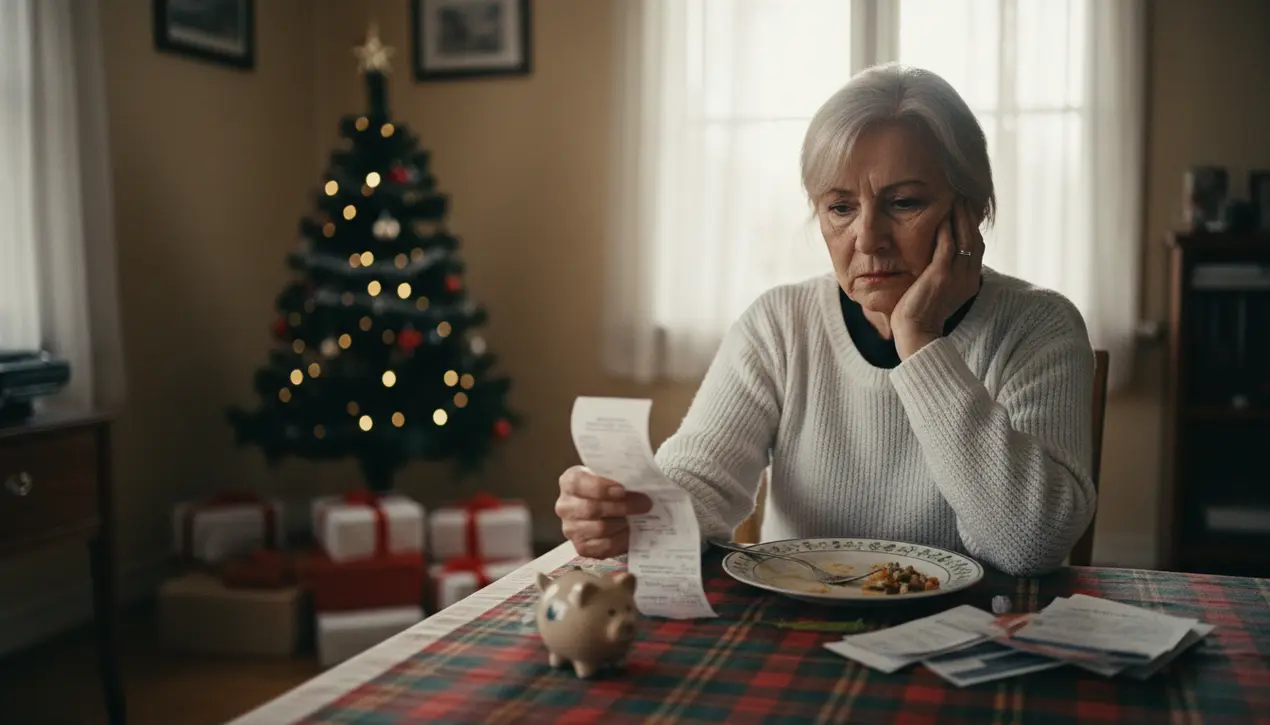- News
- governments-cabinets
- The holidays are going to test Trump’s new lie that affordability in America is a nonissue

Politicsgovernments & cabinetsApproval Ratings
The holidays are going to test Trump’s new lie that affordability in America is a nonissue
MA
Mark Johnson
17 hours ago7 min read1 comments
Denying reality has long been Donald Trump's most potent political weapon, a strategy he deployed with ruthless efficiency to cloud his 2020 electoral defeat, dismiss his surging unpopularity, and flatly contradict statements he'd made on live television. Yet some realities are impervious to even the most audacious spin—namely, the stark arithmetic of a dwindling bank account and the shrinking purchasing power at the grocery store checkout.Despite this, following significant Democratic wins on November 4 where candidates like Zohran Mamdani successfully campaigned on affordability, Trump has executed a dramatic pivot, now falsely insisting that America has rarely been more affordable. This messaging gambit, a stark departure from the economic anxieties gripping the nation, may prove a more catastrophic miscalculation than his famously incoherent tariff proposals.At a November 7 summit with Hungary's Prime Minister Viktor Orbán, Trump declared, 'The reason I don't want to talk about affordability is because everybody knows that it's far less expensive under Trump than it was under Sleepy Joe Biden,' a claim he has buttressed with a flurry of demonstrably false assertions that 'every price is down,' gas is 'nearly $2,' and energy costs are 'way down. ' The factual landscape, however, tells a different story entirely, one that even his most loyal media defenders are beginning to acknowledge under the weight of contradictory evidence.Grocery prices continue their upward climb, with record costs for staples like beef and coffee, while gas prices stubbornly hover around $3 per gallon, a far cry from the sub-$2 levels last seen in the pandemic's early days. Electricity bills have surged by 11%, and October's inflation rate ticked up to 3%, higher than the 2.6% recorded a year prior. Trump's frequent touting of Walmart's cheaper Thanksgiving dinner is a masterclass in selective framing, omitting the crucial context that the meal now contains less food and a higher proportion of the store's private-label Great Value brand.When pressed on this discrepancy by an NBC reporter, he reflexively dismissed the query as 'fake news,' a tactic growing increasingly transparent. As the holiday season looms, a period of heightened consumer spending, and Americans brace for rising health insurance premiums, the dissonance between the administration's sunny pronouncements and the tangible financial strain in households will become impossible to ignore.The ongoing government shutdown, which has halted the release of fresh economic data, offers only a temporary shield. Other indicators paint a worrying picture: a weakening labor market characterized by slow job growth and major layoffs, consumer sentiment plunging to its lowest point since mid-2022, and the share of first-time homebuyers hitting a record low of 21%.Even Trump's own Treasury Secretary, billionaire Scott Bessent, conceded that 'there are sectors of the economy that are in recession,' a rare admission of vulnerability within the administration's ranks. The most telling signal of trouble, however, came from a typically reliable quarter.Laura Ingraham, one of Fox News's most staunch Trump defenders, recently broke ranks, pushing back on his claim that the economy is 'as strong as it's ever been' and questioning the wisdom of his policy to extend 30-year mortgages to 50 years. While she quickly returned to her defensive posture, the momentary skepticism revealed a crack in the facade.Trump's strategic choice isn't merely to deflect blame for high costs—a move that would at least acknowledge the problem—but to flatly deny their existence, a high-risk bet that his supporters will trust his narrative over their own lived experience. The White House's recent attempt to champion a four-item 'Breakfast Basics Index' from a DoorDash commerce report exemplifies this desperate cherry-picking.While partisans may swallow bitter political pills, sticker shock is inherently spin-proof. If Biden grappled with a 'vibecession' where perception lagged behind positive data, Trump is flirting with a real recession, widening the chasm between official rhetoric and personal financial reality. His cratering approval ratings suggest this disillusionment is becoming bipartisan, and as the holidays test the limits of family budgets, some of his most cash-strapped supporters may find that believing the president is a luxury they simply can no longer afford.
#Donald Trump
#affordability
#inflation
#economy
#approval ratings
#featured
#grocery prices
#gas prices
#consumer sentiment
Stay Informed. Act Smarter.
Get weekly highlights, major headlines, and expert insights — then put your knowledge to work in our live prediction markets.
Comments
Loading comments...
© 2025 Outpoll Service LTD. All rights reserved.